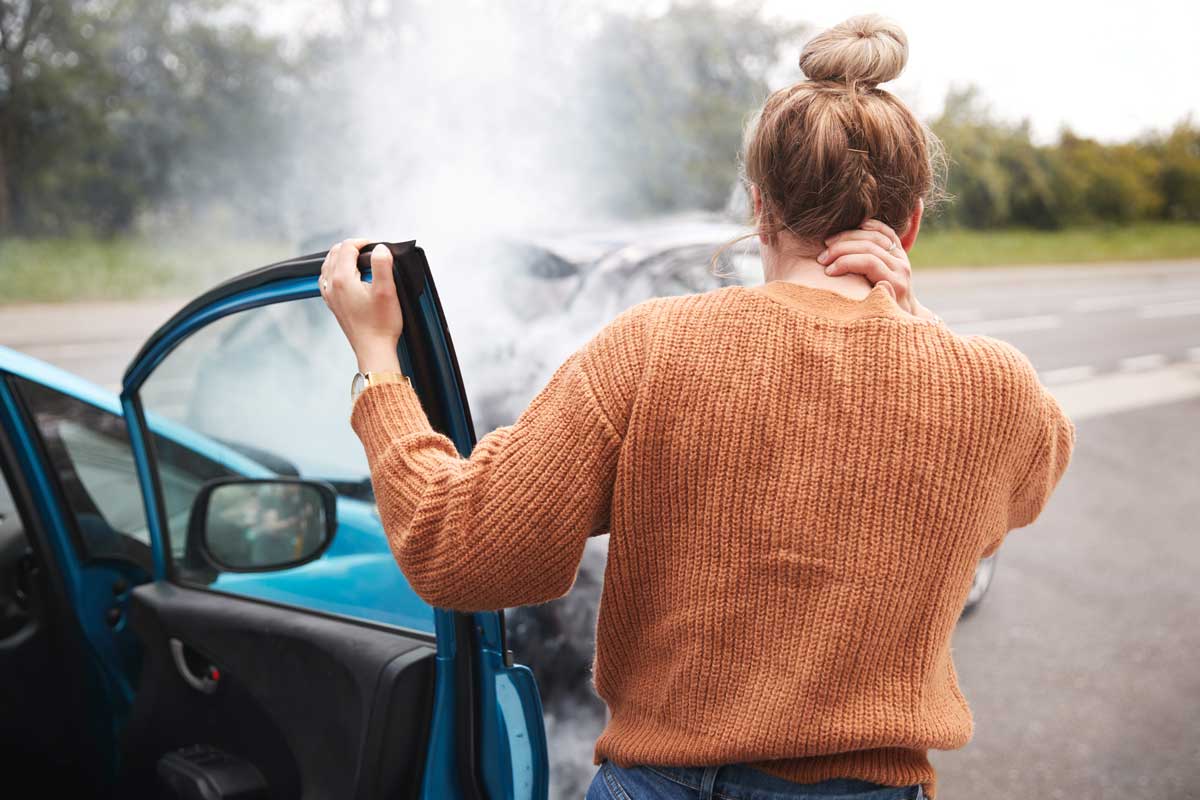
Is a car accident without insurance at-fault in Indiana?
No, having an accident without insurance does not automatically make you at fault in Indiana. According to the car accident laws in Indiana, fault is determined based on the actions that led to the crash. The driver whose negligence caused the accident is considered at fault. For example, if the accident occurred because the other driver was speeding, texting while driving, distracted, or driving under the influence, they would be at fault regardless of whether you had insurance.
It is important to note that Indiana is not a no-fault state. A no-fault state means that each driver’s insurance pays for their own medical expenses and losses regardless of who caused the accident.
If you’ve been involved in an accident and are unsure how fault will be assigned, it’s advisable to consult a car accident lawyer at Team Green Law to better understand the specifics of your case.
What happens if you drive without insurance and get into an accident?
Even if you are not at fault for an accident, driving without insurance in Indiana can result in significant consequences. Indiana’s “No Pay, No Play” law limits your ability to seek noneconomic damages such as pain and suffering if you are uninsured, even if the accident was caused by another driver’s negligence.
Though you may be limited in your recovery, you still have options. If the other driver was at fault, you can file a claim with their insurance company for compensation or pursue legal action against them directly. It is important to note that while you may not be able to recover some types of damages, you could still pursue economic damages such as medical expenses or property damage caused by the accident.
If you are concerned about what happens if you get into a car accident without insurance, consulting with a car accident lawyer at Team Green Law can provide you with the right guidance and help protect your interests.
Who is at fault in an accident in Indiana?
In Indiana, the at-fault driver is typically the one whose actions caused the accident due to negligence. Indiana follows a modified comparative negligence rule, which means that fault is divided based on each party’s contribution to the accident. For example, if one driver ran a red light while another driver was speeding, both could share fault, but the person who ran the red light may be considered the primary cause of the crash.
Under this system, if you are more than 50% at fault for the accident, you will not be able to recover damages from the other party. This rule is designed to protect those who are partially responsible but still have a right to compensation based on the extent of their involvement.
To understand more about how fault is determined in your case, it’s best to consult with a car accident lawyer who can help assess the circumstances and determine how comparative negligence might apply to your situation.
What happens if the person at fault in an accident has no insurance?
If the driver at fault in an accident in Indiana has no insurance, the victim still has avenues to pursue compensation if uninsured motorist coverage was purchased before the accident. If you have purchased this coverage, you may be able to claim compensation for medical bills, lost wages, pain and suffering, and other damages through your own insurer. It’s important to note that coverage limits for uninsured motorist policies may vary depending on your specific insurance policy, so it’s crucial to review your coverage before an accident occurs.
In cases where uninsured motorist coverage is not available, victims may also have the option to take legal action against the uninsured driver. Even though the at-fault driver has no insurance, you could still seek compensation for damages, which might include lost wages, pain and suffering, or even punitive damages in extreme cases.
To ensure that you’re fully informed about your options and the steps to take after an accident with an uninsured motorist, consulting with a car accident lawyer at Team Green Law is a wise step.
What happens if you get insurance after an accident?
If you purchase insurance after an accident, your insurer is generally not obligated to cover any costs related to that accident. This is because insurance only applies to future losses, not incidents that occurred before the policy was in effect.
This highlights why it’s critical to have adequate insurance coverage in place before any accidents happen. In the State of Indiana, liability insurance is a legal requirement, meaning you must have minimum coverage to drive legally. If you’re involved in an accident and lack proper insurance at the time of the crash, you may face significant fines, penalties, and complications when it comes to seeking compensation for damages.
Team Green is a different kind of law firm. We’re not going to make you promises we can’t deliver on. This is our promise to you: we will guide you through the legal process, working with you through straight talk and personal attention, and we’ll work for you with smart, aggressive representation to get the settlement or judgment you deserve. Other lawyers show their case results on their websites, but not only does that imply results they can’t guarantee — it’s against the Indiana Rules of Professional Conduct (Rule 7.1 [2] (2)). But you should know that the results of one successful case does not tell us what will happen with you. We will work with you to set realistic expectations of the timeline and money that could be recovered for your unique case.





